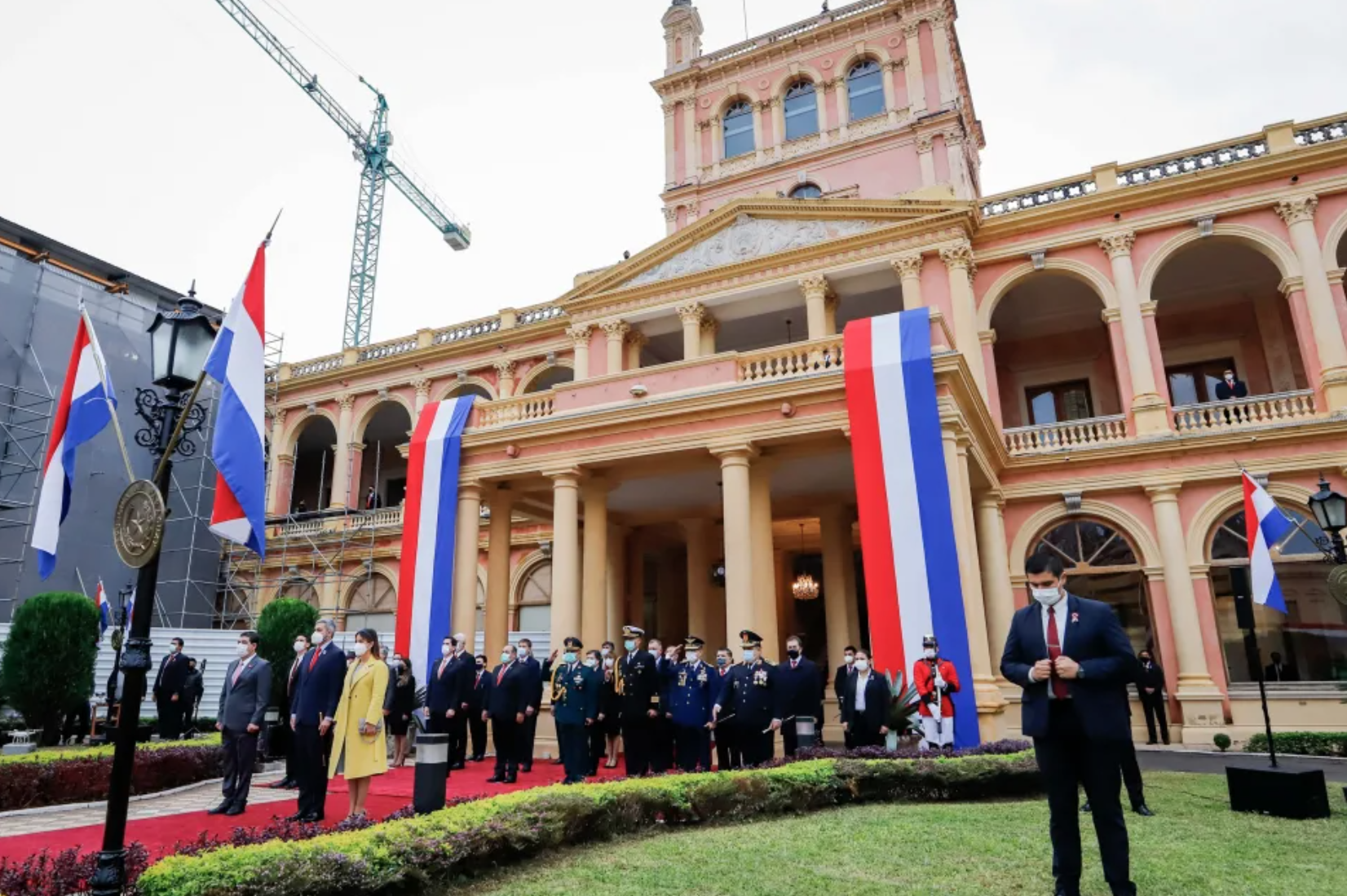On December 18, the internal elections of the two traditional parties of Paraguay took place. The Colorado Party and the Authentic Radical Liberal Party defined the list of candidates for the Congress, the governorships, and the presidential duos for the national elections of next April 30.
In the ruling Colorado Party, the candidate proposed by the Executive, the recent former Minister of Public Works and Communications, and former evangelical pastor, Arnoldo Wiens, failed in his presidential aspirations. In Paraguay, the Constitution does not provide for presidential reelection, it is a rule that the candidates proposed by the Executive are discarded in the internal elections.
With 51.6% of the votes of the members of the Colorado Party, Santiago Peña was chosen as the candidate for the presidency of the Republic of Paraguay. He is a successful 44-year-old economist who has made an administrative career in the public sector with a long career in the Central Bank of Paraguay. He has also been Minister of Finance between 2015 and 2017 and has experience in the private sector as a member of the board of Basa Bank, which is part of the “Cartes Group”.
Peña comes from a traditional family of the Asunción elite, has a family, is charismatic, eloquent, and enjoys great public acceptance, so he has an ideal image for a conservative and pro-family society. One of his weaknesses is that he was affiliated with the Liberal Party since he was 17 years old until October 2016. In that year, being Minister of Finance of a Colorado government and under media pressure, he had to affiliate with the Colorado Party. This background is a solid argument in the mouth of his detractors who emphasize his disloyalty to a hard-vote party, as is Colorado in all its institutional structure. In fact, this was probably an important cause of his defeat in the 2018 internal presidential elections.
Another challenge faced by Santiago Peña is the patronage of former President Horacio Cartes. Cartes is under the “shadow” of allegations of illegal trafficking of cigarettes to Brazil, smuggling, currency evasion (a process that deprived him of his freedom in the 1980s for some time, although the sentence was later annulled), and money laundering. As a result, he was recently designated by the U.S. embassy as a “significantly corrupt” person and lost his Visa to the U.S. along with his family.
Considering that the political ascension of Santiago Peña took place together with Horacio Cartes, although the latter has recently been elected President of the Colorado Party, there is a part of the citizenry that is very critical of his figure.
The election of the second-largest party in terms of membership, the Authentic Radical Liberal Party, was a different model. The party has been running for the presidency for years through National Alliances or Concertations with other opposing parties, in order to increase its electorate and strengthen its structure. For this reason, its “internal party elections” are a sui generis model with an open electoral roll, even debated in judicial instances, after an internal election open to all citizens, in general, was tried for the first time.
As a result of a difference of more than 248,000 votes over his closest opponent, the Liberal Efraín Alegre won as the presidential candidate representing the Concertación. This family man, lawyer, and university professor was deputy for two legislative periods and national senator for another period. Between 2008 and 2010 he served as Minister of Public Works and enjoys a high public acceptance. He has also been a presidential candidate for the opposition previously in 2013 when he was beaten by Horacio Cartes and in 2018 when he lost by a slim margin to current President Mario Abdo Benítez.
However, his image is tarnished by the bad relationship he has with the media and due to the fact that he has many open processes which have led him to popularly earn the nickname “Efraudín”. Alegre has not been able to unify his fragmented party, nor has he been able to account for party funds as president of the Liberal Party. He even has detractors within the board of directors who criticize his administration during his presidency of the Authentic Radical Liberal Party.
In addition, Alegre has chosen Soledad Nuñez as his partner, an independent with no constituency coming from the NGO sphere, who has risen in the Government of Horacio Cartes. Nuñez, apparently, will not bring her electorate, discourse, or image for the presidential campaign.
The Concertación (agreement) faces, in addition, another important challenge: that it no longer counts, as in previous elections, with the support of Frente Guazú, as it is known, the coalition of left-wing parties in Paraguay which mobilizes, in each election, numerous voters from rural areas and the peasantry.
The Frente Guazú, which achieved the presidency in coalition with the liberals in 2008, is now fragmented, disorganized, and biased, after the disappearance of the leadership of former President Fernando Lugo, who is recovering after suffering a stroke. In the absence of the former president, the Febrerista Party, of socialist trajectory, has dragged leaders of the Guazú Front and has mobilized at the national level seeking votes outside the national consensus, which will increase an important drain of the liberal/left and peasant electorate, votes that in previous elections accompanied the consensus led by Efraín Alegre.
In addition, the New Republic movement, led by Euclides Acevedo, who obtained his nomination last December 18 in internal elections, and chancellor of Mario Abdo until April of this year, will also take votes away from Frente Guazú.
Once the primary elections are closed, these candidates will have to position themselves between now and April 30, without discarding the surprises that may arise as a consequence of the serious citizen insecurity, economic instability, and social dissatisfaction with the institutions, in order to decide the political future of Paraguay in the presidential elections.
*Translated from Spanish by Janaína Ruviaro da Silva
Autor
Lawyer. Master in Public Management and Economic Law, from the University of Salamanca (Spain).











